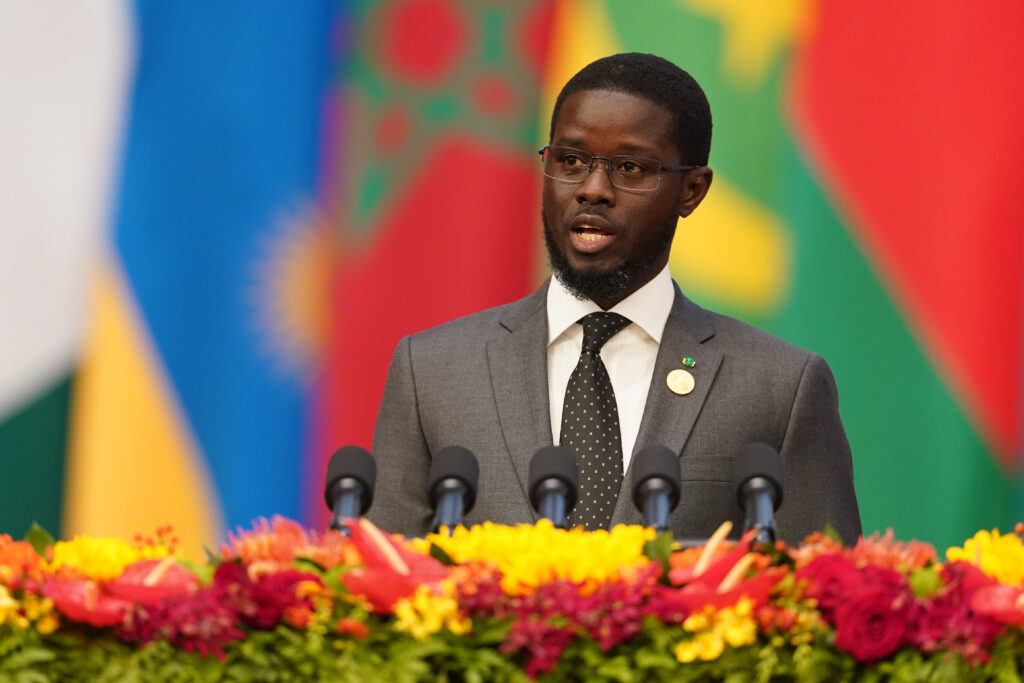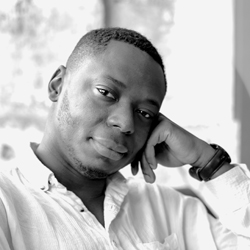Interviews / Africa/s
16 July 2025
Senegal: Where Do Bassirou Diomaye Faye’s Political and Institutional Reforms Stand?

After a dramatic presidential election, Bassirou Diomaye Faye was sworn in as President of Senegal in April 2024. He succeeded Macky Sall, who had been in power since 2012, becoming, at 44, the youngest president in the country’s history. Elected on promises to fight poverty and corruption, where does the Senegalese government now stand on these structural reforms that impact economic development and national stability? What of the refocusing of public policy on national priorities and Senegal’s foreign policy? An update with El Hadj Souleymane Gassama, writer and Associate Research Fellow at IRIS.
While President Bassirou Diomaye Faye’s election pledges placed emphasis on cleaning up state institutions by tackling corruption and promising to modernise the ageing judicial system, what has been achieved after a year in office?
Initially, the intentions were highly commendable. The drive to restore the State and give it renewed prominence after a particularly difficult period for Senegal had the backing of the public and the street. The administration enjoyed both a honeymoon period and strong popular support to carry out this clean-up mission. However, the machinery has somewhat stalled. Despite the drive for reform, there is a perception that the process has been too partial, partisan, even biased. This has fuelled suspicions that the regime is sparing those who have joined it while harbouring a spirit of revenge, if not retribution.
The question of setting an example, which was to be the second pillar of this policy, has been completely absent. Despite promises to “slim down the mammoth” of the State and to avoid the country’s general decline, we have seen the “Macky Sall system” replaced by a “PASTEF system” (Patriots of Senegal for Work, Ethics and Fraternity, the party of President Diomaye Faye). In some respects, it appears the government has expended some of its credit with public opinion by failing to honour the promises on which it was elected and by maintaining a rigid, top-down conception of power devoid of counterbalances. Moreover, all the proposed reforms to restore the State have been slow to materialise.
Today, there is a clear sense of impatience in Senegal, even rising discontent, towards PASTEF, which is now facing the realities of governance. When promises are made across the board and populist rhetoric is used, one always ends up colliding with reality. That is exactly what is happening now. The most telling symptom is the dispute following Prime Minister Ousmane Sonko’s statements last week to his party’s national council. In this speech, he criticised magistrates, civil society, and even challenged or threatened the president, claiming he is being obstructed from fully governing. This is a significant moment that reflects unease, and marks the first major tensions within the ruling majority.
As young President Bassirou Diomaye Faye announces the withdrawal of all foreign military bases from Senegalese territory, France – a historical partner – has committed to returning the infrastructure it previously occupied. In this context of deliberate distancing, what future lies ahead for Franco-Senegalese relations? Are we witnessing a rupture or a redefinition of the partnership?
There is no clear indication of a definitive rupture at present. However, with PASTEF’s rise to power – elected on the basis of a sovereigntist discourse and an assertive tone that won support both within Senegal and beyond – one should not expect an idyllic romance. Once again, the country’s leaders are being confronted with the realities of power.
In France’s case, even if it no longer enjoys the privileged partner status, we are in a kind of oxymoronic situation that could be described as a “pragmatic revolution”. Some of the rhetoric is inflammatory and expresses a desire for rupture, but in practice, in diplomatic channels, meetings and seminars continue to take place between the Senegalese and French states. It is therefore not possible to adopt a predictive analytical stance. As things stand, there is no clear trajectory pointing to an imminent breakdown in relations. One must bear in mind the foundational DNA of the ruling party, but it seems there are also actors of goodwill who are paying close attention to the new vocabulary being used. President Macron speaks, for instance, of a “restructuring”, while President Diomaye Faye refers to a “redefinition”.
This may signal a new era, but nothing currently suggests a definitive rupture.
More broadly, the year 2025 seems marked by the president’s intention to reshape the country’s foreign policy. How can we characterise the diplomacy pursued by Bassirou Diomaye Faye with regional partners? What are the key priorities of this new dynamic?
Senegalese diplomacy has long been one of the country’s strengths, with an international presence that exceeded expectations for its size. Today, however, one observes a loss of momentum, with setbacks of varying degrees.
Within the Economic Community of West African States (ECOWAS), Senegal has attempted to mediate with the member states of the Alliance of Sahel States, as illustrated by Prime Minister Ousmane Sonko’s various visits to the region. Nevertheless, nothing seems to point to any clear prospects.
While Senegal has historically been a source of proposals on the international stage, it now appears to be more on the sidelines. Domestic tensions have impacted its external credibility, particularly its strained relations with financial institutions, as the country’s economic situation becomes increasingly worrying. There is a Senegalese momentum, but one that remains difficult to define. This is likely what hinders the full expression of Senegal’s customary diplomatic force. There are good intentions and initiatives, but for now, nothing is taking root either continentally or internationally. This could be a source of concern in the longer term.
The key challenge to regaining momentum lies in rebuilding solid economic foundations. This remains the government’s primary difficulty. It has, in the past, made incendiary remarks about potential economic partners, which may have alienated them. Prime Minister Ousmane Sonko’s recent visit to Côte d’Ivoire illustrates this ambiguity: on the one hand, the meeting with President Alassane Ouattara appeared warm and cordial; on the other, the Senegalese leader also sought an audience with Laurent Gbagbo – Ouattara’s long-standing rival.
We are therefore still in a kind of balancing act that prevents the definition of a clear line in Senegalese diplomacy and in resolving the country’s domestic challenges.

